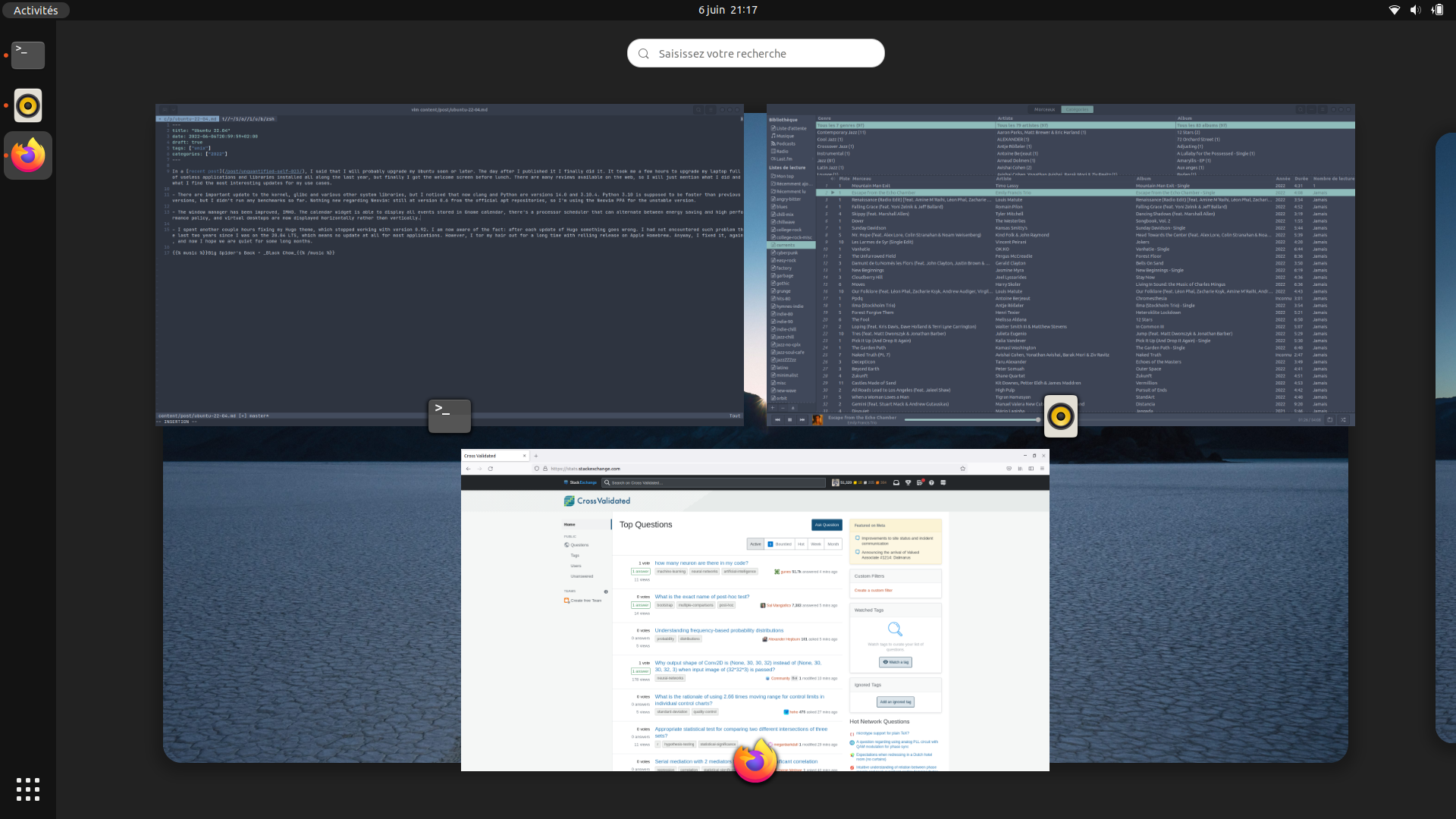Ubuntu 22.04
In a recent post, I said that I will probably upgrade my Ubuntu soon or later. The day after I published it I finally did it. It took me a few hours to upgrade my laptop full of useless applications and libraries installed all along the last year, but finally I got the welcome screen before lunch. There are many reviews available on the web, so I will just mention what I did and what I find the most interesting updates for my use cases.
There are important updates to the kernel, glibc and various other system libraries, but I noticed that now clang and Python are versions 14.0 and 3.10.4. Python 3.10 is supposed to be faster than previous versions, but I didn’t run any benchmarks so far. Nothing new regarding Neovim: still at version 0.6 from the official apt repositories, so I’m using the Neovim PPA for the unstable version.
The window manager has been improved, IMHO. The calendar widget is able to display all events stored in Gnome calendar, there’s a processor scheduler that can alternate between energy saving and high performance policy, and virtual desktops are now displayed horizontally rather than vertically. Gnome screen capture got a few enhancements as well.
I deleted a bunch of unused or defunct applications, including Docker and bitlbee. I also manually cleanup up the old LLVM files that came with the previous installation of Ubuntu 20.04 and that were not cleaned up during the upgrade process. Finally, I re enabled Tracker, which I disabled a while ago, and some default settings, which I also disabled for i3 and Regolith desktop. I did not reinstall the Snap store. In fact, I deleted everything related to snap when I configured my laptop the first time, and then never looked back. At this point, I don’t even know how to reinstall snap on my machine.
There were some quircks here and there: IPython was not happy with the missing Qt backend for matplotlib, so I now use
matplotlib.use("GTK4Cairo")instead, which is not a bad idea after all. Of course, switching to Python 3.10 instead of 3.8 also means that I had to reinstall every little applications that sit in my$HOME/.local/binfolder, mostly frompip3 install --user. To remap the CAPS lock key to, I was previously invoking setxkbmap -option caps:escapein my shell init scripts. This no longer works under Wayland, but I discovered that you can just ask Gnome shell to do that for you:gsettings set org.gnome.desktop.input-sources xkb-options "['caps:escape']".I spent another couple hours fixing my Hugo theme, which stopped working with version 0.92. I am now aware of the fact: after each update of Hugo something goes wrong. I had not encountered such problem the last two years since I was on the 20.04 LTS, which means no update at all for most applications. However, I tor my hair out for a long time with rolling release on Apple Homebrew. Anyway, I fixed it, again, and now I hope we are quiet for some long months.
I also managed to install the Nordic theme, which is beautiful (especially compared to the default dark theme in Ubuntu) and reminds me of the one I had when I was using Regolith desktop. I didn’t reinstalled it yet, since I want write to try the default settings yet another time again.
♪ Big Spider’s Back • Black Chow

